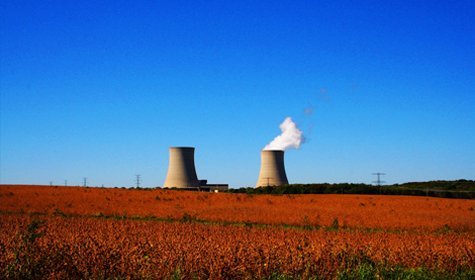by Jim Malewitz
How much of Texas should one electric company power? As much as the free market dictates, a North Texas lawmaker says.
Texas prohibits companies from owning or controlling more than 20 percent of the generation capacity on the electric grid. The ban was a key piece of the law that deregulated the state’s electricity market in 1999. But state Rep. Matt Krause, R-Fort Worth, filed legislation this week that would eliminate that cap, worrying consumer advocates who say the change would open the door to market abuse and higher electric rates.
“We still think the market can take care of itself and should take care of itself,” said Clayton Knippa, Krause’s chief of staff. “The arbitrary 20 percent maybe isn’t as necessary as it was when it was first conceived of.”
The Texas Public Policy Foundation, a conservative think tank, supports the change. “The state of Texas just shouldn’t have anything to do with mandating or regulating installed capacity,” said Bill Peacock, the group’s director of research.
But consumer groups say the proposal would eliminate a fundamental consumer protection – one that keeps the electricity market competitive by preventing behemoths from controlling large swaths of it.
“What this basically means is that the more powerful companies end up controlling prices, and it would be bad for consumers,” said Tom “Smitty” Smith, director of the Texas office of Public Citizen, a nonprofit advocacy group.
Public Utility Commissioner Ken Anderson Jr. said that the 20 percent threshold wasn’t sacred but that officials created it to ensure “robust competition in the wholesale market and to keep from a monopoly situation from occurring – or a duopoly.”
Knippa said that the rule had outlived its purpose and that Texas has other ways to ensure mammoth power companies don’t toy with the market.
Other state laws, for instance, bar generators from abusing their market power.
“Market power,” according to a 2006 Public Utility Commission rule, is “the ability to control prices or exclude competition” in a market. The rule defines “abuse” of such power as practices that are “unreasonably discriminatory or tend to unreasonably restrict, impair or reduce the level of competition.” Examples of such practices include predatory pricing, withholding of production, precluding entry and collusion.
Luminant’s power plant fleet can typically power about 20 percent of the state’s grid. The company is a subsidiary of Energy Future Holdings, which has been entangled in bankruptcy proceedings since last April. Krause’s bill could make it easier for other large generators – such as Calpine or NRG Energy – to buy Luminant’s plants.
Krause wasn’t motivated by those implications, Knippa said.
Krause’s bill would also prohibit the utility commission from switching Texas from an “energy only” market to a “capacity market,” which would pay power plants to maintain excess capacity. That issue spurred heated debate throughout much of 2013, but simmered after the commissioners backed off the discussion. Consumer groups side with Krause on that issue. (Read more about the capacity market debate.)
“We would certainly agree that the capacity market is the wrong way to go,” said Jake Dyer, a policy analyst with the Texas Coalition for Affordable Power. But nixing the 20 percent ownership rule? That would eliminate a “key consumer protection,” he said.
This article originally appeared in The Texas Tribune at http://www.texastribune.org/2015/01/31/proposal-would-let-big-electric-generators-get-big/.

